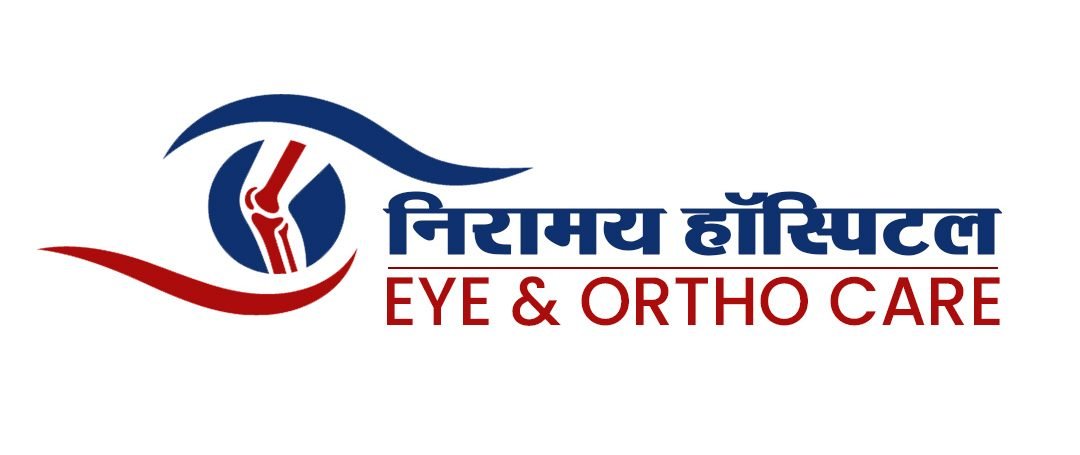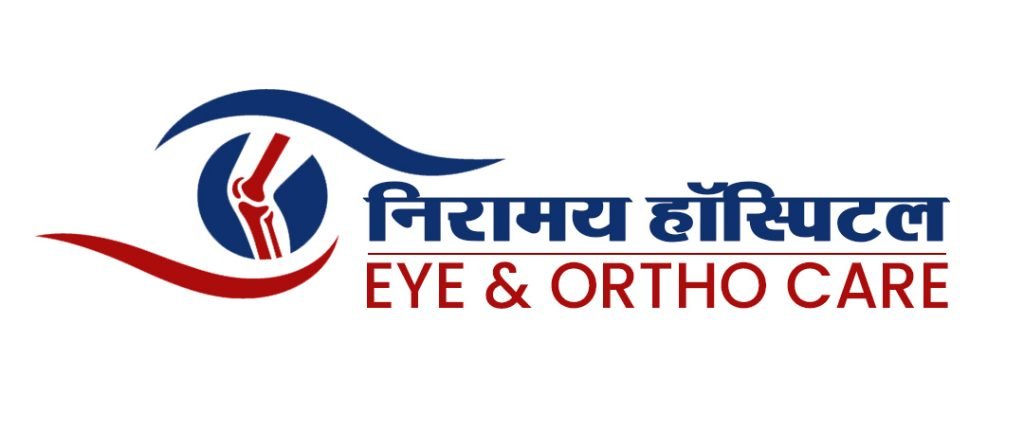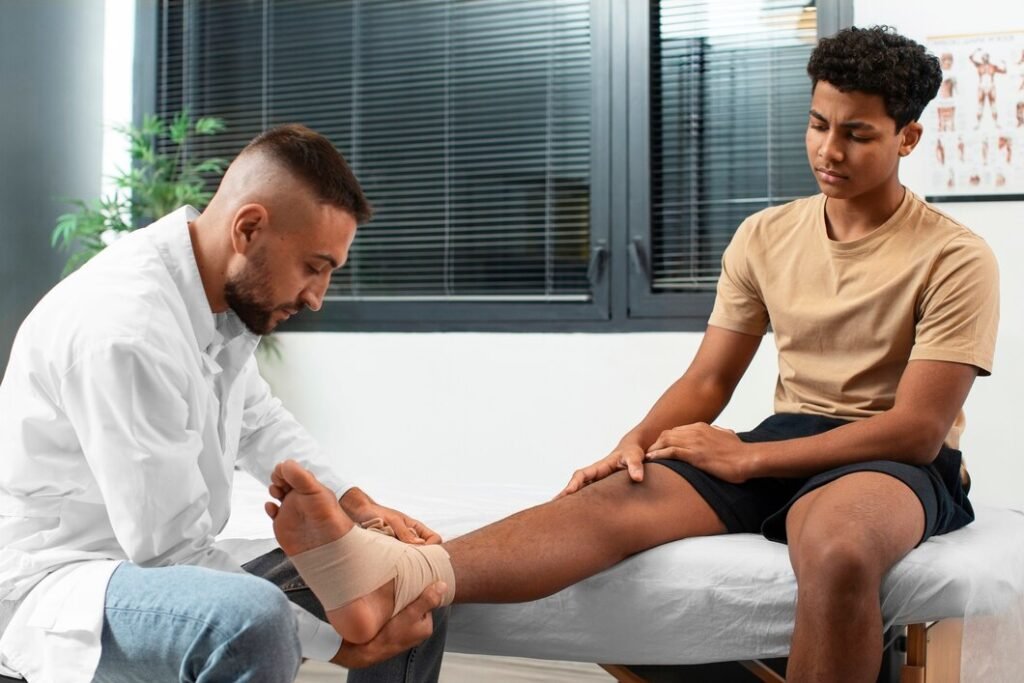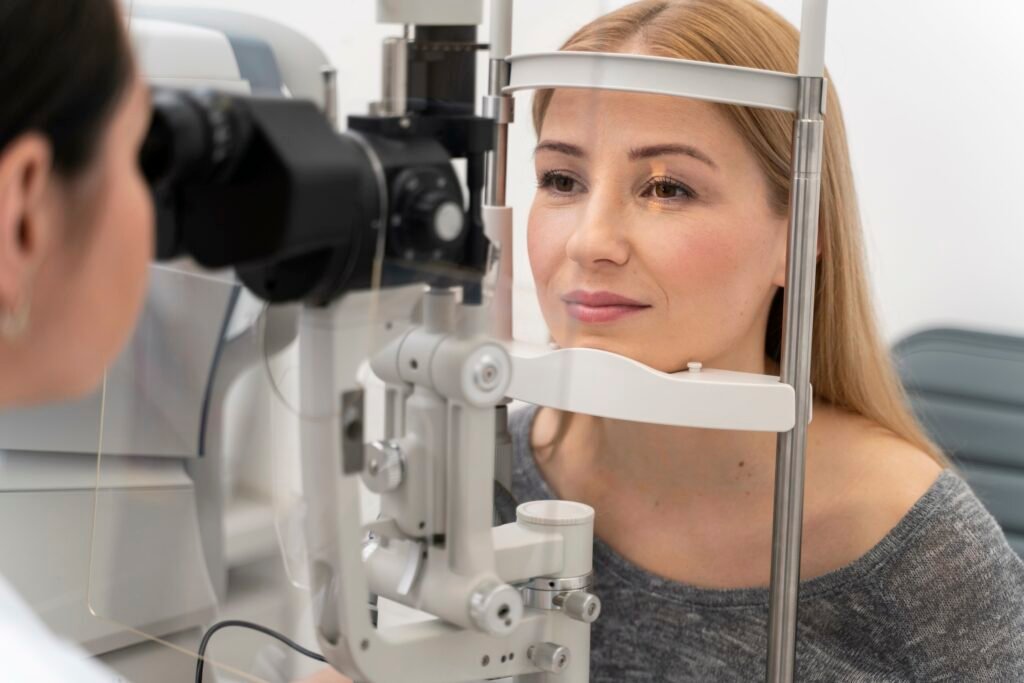A meniscus tear is one of the most common knee injuries that causes pain, swelling, and difficulty in movement. If you’re struggling with this condition, you’re probably wondering: What is the best treatment for a torn meniscus? At Jain Orthovision, we specialize in advanced Meniscus Tear Treatment to help patients regain mobility and get back to daily life without pain.
In this blog, you’ll learn about the causes, symptoms, and different treatment options for a torn meniscus. We’ll also explain when you should see the top orthopedic doctor in Kota, and why choosing the best orthopedic hospital in Kota can make a big difference in recovery.
What is a Meniscus Tear?
The meniscus is a C-shaped piece of cartilage in your knee that cushions and stabilizes the joint. It works like a shock absorber. A sudden twist, heavy lifting, sports activity, or even age-related degeneration can cause a meniscus tear.
Common Causes of Meniscus Tear
- Sports injuries (football, basketball, running)
- Sudden twisting of the knee
- Age-related wear and tear
- Heavy physical activity or accidents
Symptoms You May Experience
- Knee pain and stiffness
- Swelling around the joint
- Locking or catching sensation in the knee
- Limited range of motion
- Difficulty in walking or bending
If you notice these symptoms, it’s time to consult an orthopedic doctor near me for early diagnosis and treatment.
Meniscus Tear Treatment: Non-Surgical Options
Not every meniscus tear requires surgery. At Jain Orthovision, our first goal is always to use conservative treatments where possible.
1. RICE Method (Rest, Ice, Compression, Elevation)
- Rest your knee and avoid activities that worsen the pain.
- Apply ice packs for 15–20 minutes several times a day.
- Use compression bandages to reduce swelling.
- Keep your leg elevated to ease discomfort.
2. Medications
Anti-inflammatory medicines may be prescribed by the orthopedic doctor near me to reduce swelling and pain.
3. Physiotherapy
Targeted exercises help restore strength, improve flexibility, and reduce pressure on the knee joint. Our physiotherapy team at Jain Orthovision designs personalized exercise plans.
4. Injections
In certain cases, corticosteroid or hyaluronic acid injections may be used to reduce inflammation and improve mobility.
Non-surgical options are most effective for small tears and patients with less severe symptoms.
Meniscus Tear Treatment: Surgical Options
If conservative care doesn’t work, or if the tear is severe, surgery may be necessary. At Jain Orthovision, our advanced surgical techniques ensure faster recovery and long-term results.
1. Arthroscopic Meniscectomy
- The torn part of the meniscus is removed.
- This minimally invasive procedure allows for quick healing.
2. Meniscus Repair Surgery
- The damaged meniscus is stitched back together.
- Suitable for younger patients and specific types of tears.
3. Meniscus Transplant
- For patients with complete cartilage loss, a meniscus transplant may be an option.
- This is recommended in rare cases for long-term joint health.
All surgical procedures are performed under the guidance of the top orthopedic doctor in Kota at Jain Orthovision using modern technology.
Why Choose Jain Orthovision for Meniscus Tear Treatment?
At Jain Orthovision, we are committed to providing patient-focused care with world-class facilities. Here’s why patients trust us:
- Experienced Specialists – Our team includes the top orthopedic doctor in Kota with years of expertise in knee care.
- Advanced Technology – Minimally invasive arthroscopy ensures faster recovery.
- Personalized Care – Treatment plans are tailored for every patient’s condition.
- Comprehensive Services – From diagnosis to physiotherapy, everything under one roof.
- Best Orthopedic Hospital in Kota – A trusted name in orthopedic care with high patient satisfaction rates.
Recovery Tips After Meniscus Tear Treatment
Healing doesn’t stop after treatment. Following proper recovery steps is key to getting back on your feet.
- Follow Physiotherapy Exercises – Strengthen your muscles and improve flexibility.
- Maintain a Healthy Weight – Reduces strain on the knee joint.
- Avoid High-Impact Sports Initially – Gradually return to activities as advised.
- Wear Supportive Gear – Braces may help stabilize the knee during recovery.
- Regular Check-ups – Stay in touch with your doctor for progress monitoring.
FAQs on Meniscus Tear Treatment
1. Can a torn meniscus heal on its own?
Small tears may heal naturally with rest and physiotherapy, but larger tears often need medical treatment.
2. How long does recovery take after meniscus surgery?
Recovery usually takes 4–6 weeks for minor procedures and up to 3 months for major repairs.
3. Who should I consult for a torn meniscus in Kota?
You should visit Jain Orthovision, the best orthopedic hospital in Kota, to consult with the top orthopedic doctor in Kota for accurate diagnosis and treatment.
4. Is surgery always required for meniscus tear?
No. Many patients recover with non-surgical treatments like physiotherapy, medications, and rest. Surgery is only recommended when conservative methods fail.
5. What happens if a meniscus tear is left untreated?
Ignoring treatment can lead to chronic knee pain, arthritis, and reduced mobility. Early care is always better.
Conclusion
A meniscus tear can disrupt your daily life, but with the right treatment, you can regain mobility and live pain-free. At Jain Orthovision, we provide advanced Meniscus Tear Treatment with both non-surgical and surgical options, depending on your condition. Whether you need physiotherapy, minimally invasive surgery, or expert post-care guidance, our team ensures the best outcomes for your knee health.
If you are searching for the top orthopedic doctor in Kota or the best orthopedic hospital in Kota, Jain Orthovision is here to help you every step of the way.
Call us today to book your consultation and take the first step toward a pain-free life.









